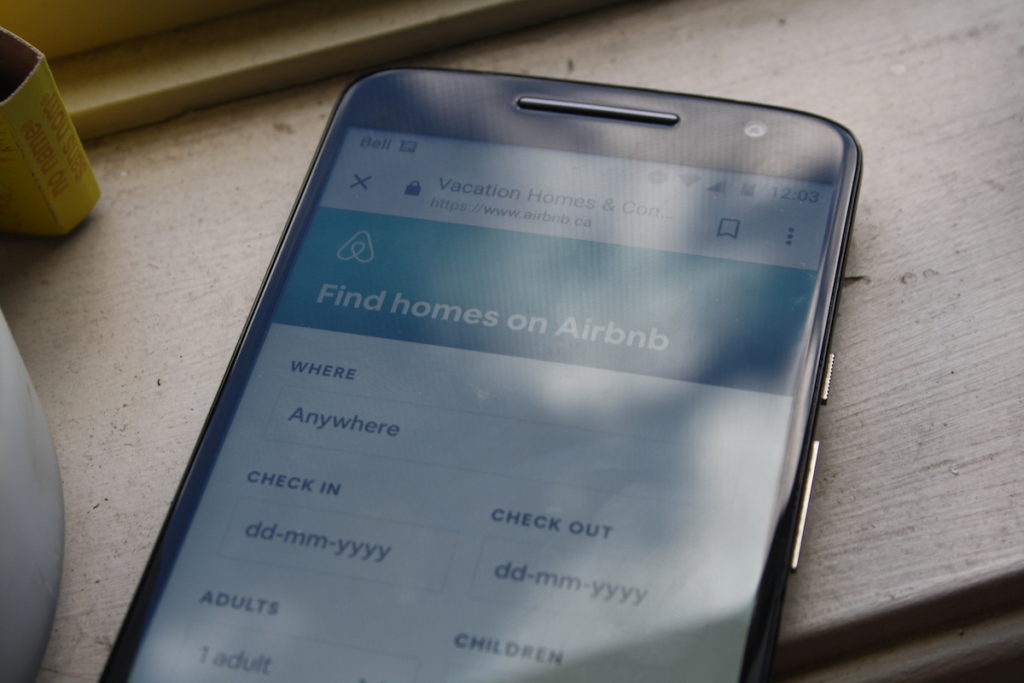By: Chelsea Perry
Earlier this month, Greg Rivard, a Charlottetown city councillor, received a storm of backlash after releasing a statement regarding the city’s regulations (or lack thereof) for Airbnb. This statement was made in response to the announcement that the new apartment build on Upper Prince Street would be used for short-term rentals.
In an interview with the Guardian, Rivard explained that the city’s “hands are tied,†as there are no bylaws in place that would obligate landlords to rent out their properties to long-term tenants. He added that Airbnb regulation would fall under the responsibilities of the province, as “there’s nothing from the city perspective that deals with that.â€
The bylaws, which are enacted by the city, say differently.
Section 1.2 of the “City of Charlottetown Zoning and Development By-Law†prescribes “the purposes for which land, buildings, and structures in any zone may be used.â€
Regulating short-term rentals is by no means a cutting-edge idea. Several major cities globally have put measures in place to limit Airbnb listings, if not outright ban them.
Vancouver introduced guidelines back in April that blocked owners from registering unless they had a city-business license number. Short-term rentals will only be permitted in spare rooms of the owner’s primary residence, or for the whole property when the owner is away temporarily. No one will be permitted to rent out full apartment complexes, homes, or basement suites.
Even small towns are cracking down on Airbnb. Victoria-by-the-Sea, a village in PEI with a population of about 100, introduced a bylaw that permitted home owners to operate hotels and bed and breakfasts. Vacation homes are permissible if rented out for a month or more at a time. This is to encourage people to start buying property in the village and maintain a sense of rural community.
According to Hillary Price, CAO of Victoria-by-the-Sea, there have been no applications for tourist accomodations, and the number of full-time residents has increased since the introduction of the bylaw.
With a vacancy rate of 0.9%, Charlottetown is in the midst of a housing crisis. In light of the upcoming municipal elections on November 5th, The Cadre reached out to the four mayoral candidates with two questions.
- Does Charlottetown have the authority to regulate Airbnbs/short-term rentals? Â If not, why?
- Should Charlottetown regulate short-term rentals? If so, how? If not, why shouldn’t they regulate them?
Here’s what they said.
Kim Devine
“Yes, Charlottetown has the authority to regulate short-term rentals like Airbnbs. Under its Zoning and Development Bylaws, the city has the right to determine what kind of use is permitted in any given zone.â€
“I believe short-term rentals should be regulated to protect year-round residential housing. With a strong market demand for Airbnbs and a vacancy rate for long-term rentals below one per cent, we need to look at how much of our housing has been converted to Airbnbs and other short-term rentals, and how it is affecting our neighbourhoods. What kind of regulations are appropriate for Charlottetown is a question that I believe should be addressed by the community: residents, students, Airbnb/short-term rental operators, the tourism industry, and other interested stakeholders. I believe a collaborative solution is required to meet the needs of our tourism industry while ensuring that residents have access to housing.â€
Cecil Villard
“Airbnb’s are a popular and fast growing phenomenon that legislation has been slow to address. I believe it is a land use issue that should be addressed in the Provincial Planning Act and the City’s Zoning Bylaw. It is also a fair taxation issue as Airbnb’s have a direct impact on the accommodation industry and an indirect impact on the food and beverage industry.  As both issues are a municipal jurisdiction, I contend the answer is yes. I am pleased to learn the City’s Planning Department will be providing background and alternatives for the new Council to consider. Municipalities across Canada are dealing with this topic with several enacting bylaws like Toronto and Vancouver. I would be asking the Planning Staff to review what others have or about to enact and resolve a Charlottetown solution.â€
“I believe the City should regulate short-term rentals. There are neighbourhood impacts, taxation impacts and land use impacts that need full airing and a sense of fairness to all those who are impacted. The existing planning process can achieve the proper openness to this topic. I would strive for the appropriate planning bylaw with equitable taxation considerations. Council can review options and choose the best course of action.â€
Jamie Larkin
“Charlottetown does have the right to regulate short term rentals within the city through bylaws.
Vancouver for example just changed their bylaw on short-term rentals. They have to be owner occupied or approved by the city to be a short-term rental. Fines for violating the bylaw start at $1,000. Overnight, 2,400 AirBnB listings came off the market. Going from a long-term rental to a short term rental is a change of use and this must be approved by the city.â€
Philip Brown
“Make a bylaw to put regulations on Airbnb in Charlottetown. If it’s owner-occupied – no problem. If people are staying in their cottage over the summer and renting it out for the winter months, the money is going back to the owners. If a building owner is not living on his property and renting his apartments out for short-term rental, that owner should be paying the commercial, non-residential property tax. There are 500 Airbnb in Charlottetown, and only 135 of those are registered with the Quality Tourism Association. For this summer, they’ve brought in an estimated 5 million. Let’s get regulations in place that give the city more control. If I’m elected, I’ll get right at it in 60 days.
